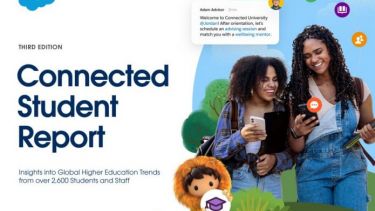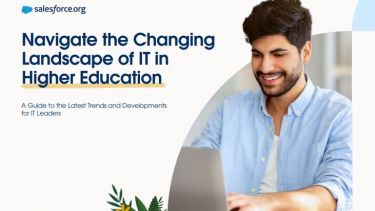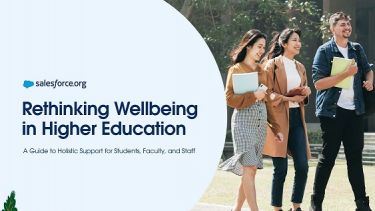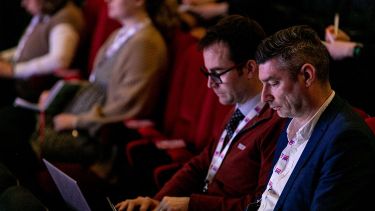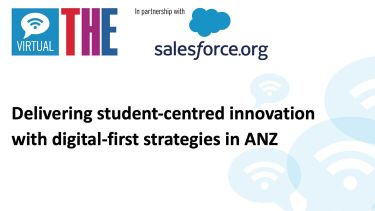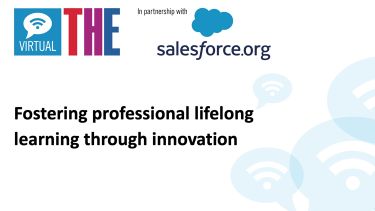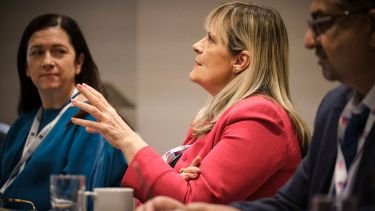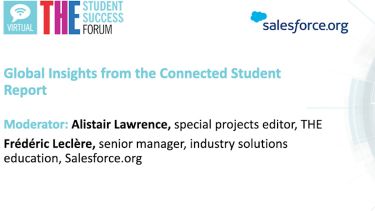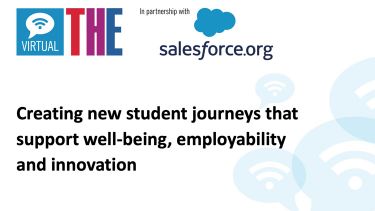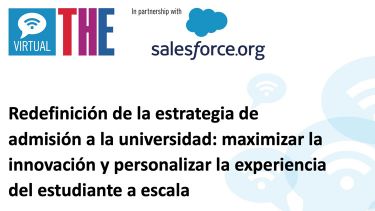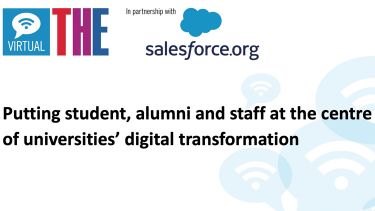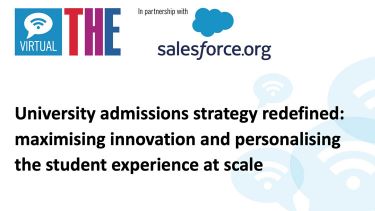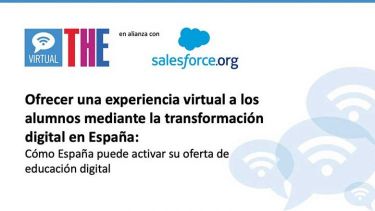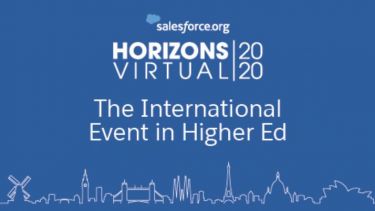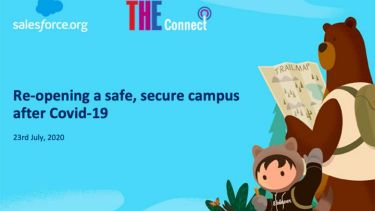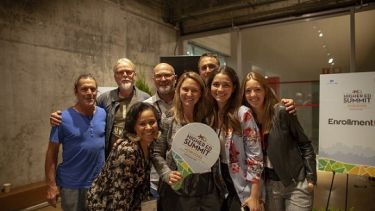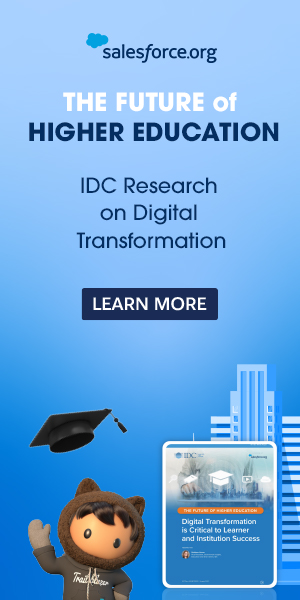
Extending study spaces, enabling modular learning and using data insights to remove silos were three recommendations from a panel of university and industry thought leaders
At a recent Times Higher Education and Salesforce.org executive roundtable event, a panel discussed higher education’s responsibility to maximise student success in an age of technological disruption. Universities thrive on collaboration, noted Salesforce.org’s senior director of higher education, Jane Armstrong, encouraging university leaders to re-think their business model and how they prepare students for the future. Ms Armstrong was joined by Times Higher Education editor John Gill, who chaired the panel, Kathleen Armour, pro vice-chancellor of education at the University of Birmingham, and John Hill, head of digital learning at the University of Derby.
Mr Gill began by reflecting on student success, its growing importance in THE rankings, and government-led initiatives such as the Teaching Excellence Framework (TEF). The marketisation of higher education has further incentivised universities to prioritise student success, and in offering different platforms for delivering education and pastoral care, technology could “oil the wheels” of progress, he said.
Participation is key
The panellists were asked whether universities now took student success more seriously. Kathleen Armour was not so sure.
“I think there are a number of universities who have forever focused on teaching,” she said. “What has changed is the way we are thinking about teaching. Student learning has always been a priority, it is just that it has been conceptualised a little bit differently.”
Mr Hill added that government guidance made it clear increasing student participation across the sector was non- negotiable. “For an institution such as Derby, it is core to our approach that we get more students from low-participation neighbourhoods into the university...There are ramifications in terms of how we support students coming through. It’s progression and attainment that are the challenges for institutions.” The discussion emphasised how important it is to track the development of individuals across the entire student life-cycle – from their general performance and well-being, to their participation in courses and activities, and across the different programmes that institutions offer.
Universities today are increasingly pairing student data across teams and platforms to create a connected campus. The result? They can drive student success like never before.
However, Ms Armstrong noted that it was increasingly difficult to identify students who will succeed on campus. “Students are primarily engaging on social media platforms...and it is really challenging for the institutions to be able to reach out.” She added that there are solutions that can close the distance between the university and students, supporting the admissions process, and that Salesforce.org partners with institutions such as the London School of Economics and Political Science to widen participation, simplifying the experience for both students and administrators.
The panel’s conversation shifted to the tension between online and on-campus modes of learning. For Professor Armour, it was not a case of “either/or” as both can co-exist, but, she added, “What happens in the physical space becomes really important because that has got to add value.”
“It is all about blurring and extending the classroom,” said Mr Hill. He saw new learning spaces and formal learning spaces as co-mingling. Professor Armour said that universities are dealing with issues surrounding legacy estates and IT systems – the latter presenting the greater challenge. Digital transformation is an urgent issue, she said, and it costs money to fix. Mr Hill noted that universities had yet to maximise their legacy systems as the fourth industrial revolution poses new systemic challenges.
Rethinking the student experience
The conversation evolved into thinking about ways that universities should modify their approaches to learning and teaching, technology, and employability.
“A more personalised approach to the total student experience will emerge in the coming years,” said Ms Armstrong. “What we hear from our customers, what we talk about are these siloed systems. That means people are not collaborating across the institution, and increasingly, given the expectations of students who are used to an ‘always-on’ culture, they want and they expect that experience from the university.”
She added that incorporating data insights can help universities take a 360-degree view of their students and deliver a more personalised learning experience.
Mr Gill asked whether the curriculum itself needed to be revised. Mr Hill said he sees pockets of excellence but universities must work towards a curriculum that delivers meaningful education across the institution. Mr Gill referenced the Singapore model, the SkillsFuture project, which enables 20-year enrolments, extending the learning experience to better equip students for a fast-evolving job market. Professor Amour questioned why the UK higher education sector remained wedded to a 13th-century structure of a three- or four-year degree.
Mr Gill put it to the panel that we may need to wholly rethink the structure of the degree.
Professor Amour said Birmingham was becoming “properly modular” and “properly semesterised” with its degree programmes. “One of the problems I have with the TEF is that, if we are not careful, we will measure universities on subjects that have become frozen in time.” Higher education, she continued, was moving in a new direction – towards cross-disciplinary programmes that sought out new areas of knowledge.
A question of employability
Asked whether it was incumbent upon universities to take responsibility for reskilling when many corporations train in-house, Mr Hill advocated having a dialogue with industry, inviting alumni and employers into the curriculum conversations. He said: “We do have a European Social Fund project where we are working with local SMEs in the East Midlands and, through that, we are asking them to help shape the digital capability work that we are doing.”
Such projects are in line with a new era of employment, where the fourth industrial revolution is creating a fast-changing economy that may result in today's student having multiple careers in their lifetime.
Salesforce.org will take part in the THE Live 2019 session “The data-led university: making sense of the numbers”. Find out about Education Cloud


